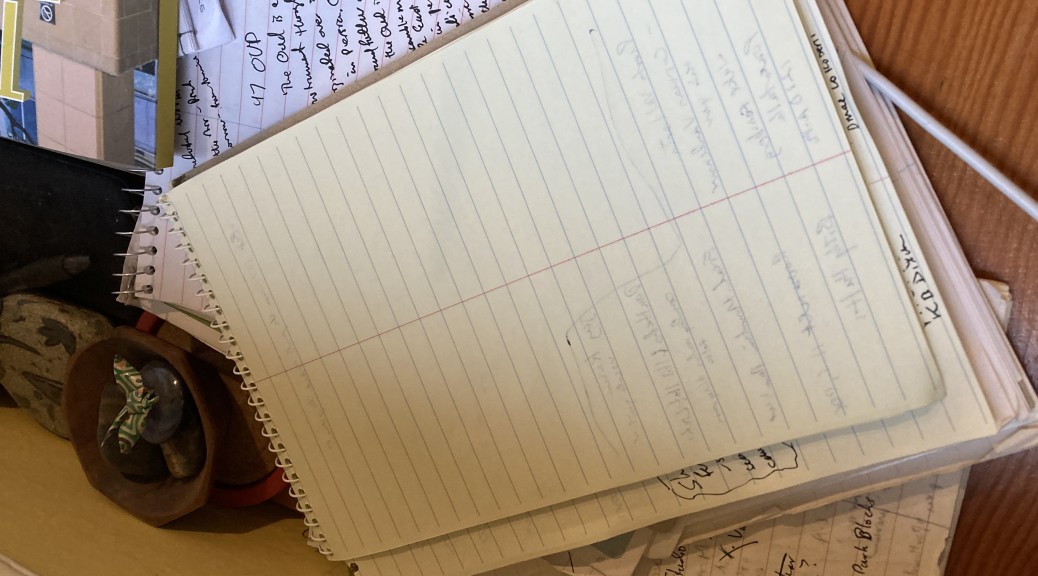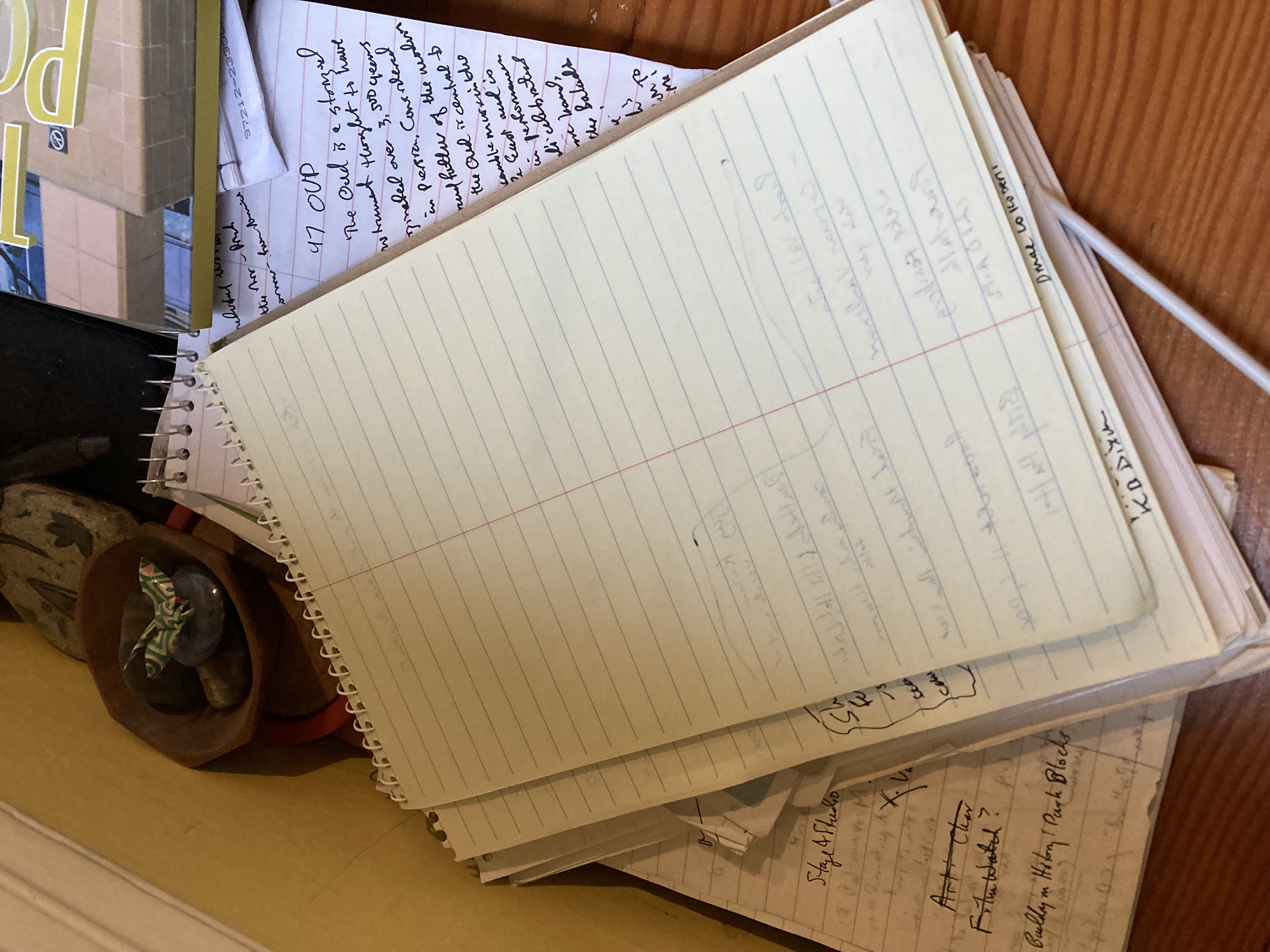“I’M LOOKING FOR AN UNUSED NOTEBOOK so I can make a grocery list,” Laura said, ruffling through a drawer in the little desk in the living room. “But all I’m finding is these old ones that are filled with stuff you wrote.”
With that, she presented me with a stack of notebooks to add to the pile already sitting on a corner of my own desk. These ones, it appeared, were pretty old – at least a dozen years, very possibly more. They were filled with cryptic comments, names and dates and places and the occasional phone number, quotations from a variety of people, jots and tittles and partial pieces of stories written or unwritten: scrawls of importance in their moment, and barely comprehensible now. Note-taking, in general, is not for the future.
Curious, I thumbed through a couple of the notebooks, finding a few things still vaguely familiar and a lot that seemed to be free-floating bits of debris ambling through the void.
And then I stumbled on the following scrawl, of which I have no memory, and yet which is unquestionably my own, written in my own hand. Was it a fleeting thought that ended where it ended? A draft for an unfinished story, or a part of a story that was published somewhere, although I have no memory of it? Curious: a little piece of entropy, or so it seems, in search of a place to call its own.
Here it is:
***
“If the nature of the universe is to defy cohesion and the nature of the human mind is to discover pattern even where none exists, the invention of the alphabet is a very good, and a very human, thing: It allows us to imagine beyond the abyss.
“Like lists of 10 and the binary zeroes and ones inside your computer and Mr. Dewey’s celebrated decimal system, the alphabet – 26 letters in English, although the number varies in other tongues – is like a girdle around entropy, organizing and holding together things that might not want to have anything to do with one another at all. The letters build words, of course, which build phrases and sentences and paragraphs and eventually manuscripts. But in addition, each letter is a sort of organizing sentinel on its own, a gatherer of unlike items and ideas into a commonality of sound. The ‘S’ words, so sibilant. The ‘V’ words, so very vivacious (or violent). The ‘W’s, so wavery. Sometimes stuff – esoterica, oddments, bits of information floating in the void – are fascinating just because. How do we make sense of them? We compartmentalize them. We invent a pattern.
“But enough of that. Order in the court. Alphabetical order, if you please; so sensible and ridiculous at the same time. I mean, does that just define human civilization, or what? A to Z, from dictionaries to encyclopedias to Anything for Dummies, the alphabetically organized volumes march on.”
***
I ripped out the quizzical page, and rustled through the rest of the notebook. Then I began to rip out all of the used pages, and took them to the recycling bin, and returned with a vastly slimmed-down book. “I’ve taken out all of the old pages,” I told Laura. “You can have the rest.”
Two blank pages, as it turned out.
Enough for two trips to the grocery store, or one very extensive trip. A list, or two, all neatly categorized, practical, and reassuringly human.

